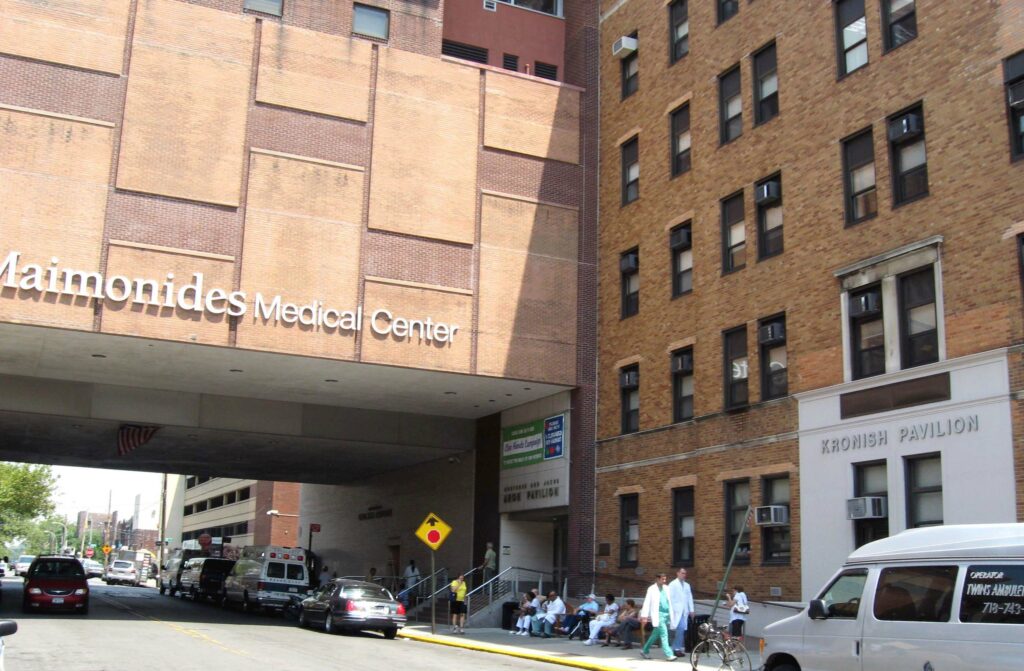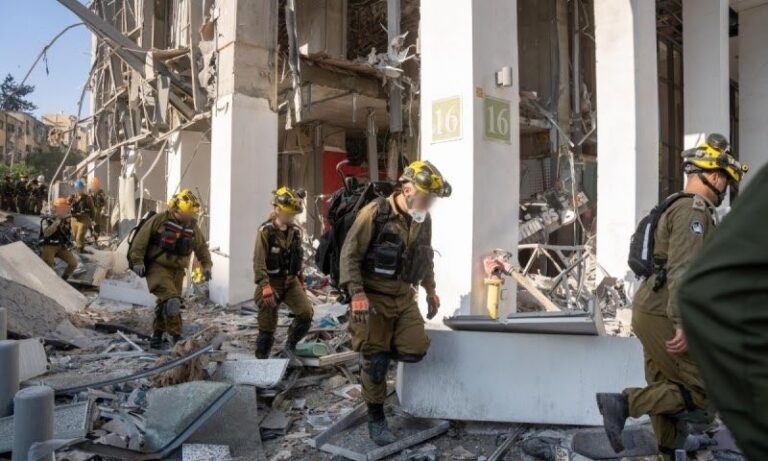By Rabbi Yair Hoffman for 5tjt.com
One of the leading causes of death in this country is medical error. And, this author has been told, we, the religious Jewish family members, are the leading “pain in the neck” ethnicity at hospitals, because many a frum patient has relatives that stay at the hospital round-the-clock. But this latter point is a good thing. It involves the preservation of life – one of the highest priorities in halacha. What follows is a checklist of what the family members should watch out for.
KNAF
One thing first, however. Always watch out for: K.N.A.F. It stands for Kiddush Hashem, Nice, And Firm. It is Zeidy’s health at stake, so you must be firm. Don’t be intimidated, but always be nice.
There are three categories in this checklist. Go over it each time you begin and for every time you transfer to another family member: Things to Make Sure They Do, Things to Make Sure They Don’t Do, Things You Should Do
THINGS TO MAKE SURE THEY DO
- Always double check that when they take the patient for imaging, or anything else that they strap the patient in the wheelchair. This is for back and forth. Also, there is a gurney that they use to transfer the patient onto – the wheels need to be in a locked position. When this author was in the hospital with COVID, I got dropped. It hurt badly. Also, staff changes all the time and most hospitals do not have effective systems in place to make sure that everyone does this kind of thing.
- Make sure that the staff washes their hands and also use fresh gloves. When I was watching my father alav haShalom, the nurse didn’t clean her hands when doing all of the kidney dialysis stuff. This helps prevent infections. This should be for the post-op infection antibiotics, any catheter changes, any central line precautions and all the kidney dialysis stuff.
- Make sure that the alarms on medical equipment are checked out quickly.
- They will think that you are a pain for this one, but try to make sure that they get the test results to the correct person right away. Doctors have confided in me that this is one of the main reasons that people die in the hospital.
- Nowadays, most hospital label the body part upon which the surgery is done, but make sure that it is correct. Don’t use the terms, “Make sure it is the right one..” Use the word, “Correct.”
THINGS TO MAKE SURE THEY DON’T DO
- Make sure that it is the correct medicine listed. Sometimes the wrong medicine is given or the wrong dosage. Often, medical staff will administer a medication to which a patient has a known allergy. Make sure to know the patient’s allergies and to both receive and transfer it to the next family member.
- Always make sure that the urine or blood sample is properly labelled. Many mistakes happen when these things are ascribed to the wrong patient.
- Make sure the doctor or nurse doesn’t mix up patients. When any medical staff member visits say the name of the patient and make sure they check the chart also.
THINGS YOU SHOULD DO
- Look around and try to identify any possible danger or risk.
- Make sure the patient is turned or gets into a chair every two hours during the day to prevent bed sores. Most hospitals have beds that kind of do this, but it may not be enough. Learn to recognize the first stage of a bed sore – a reddened, darkened or discolored area on light skin. On darker skin, it may look purple, or blue or or shiny. The spot may feel warm or hard.
- Talk to the patient, so there will not be changes in his or her mental acuity.
- The main caretaker should ask the doctor what the diagnosis is and what the plan is.
- The main caretaker should try to gain insight into who everyone is, their shifts, and make a list for all of the family members.
- We should be careful not to be distracted by our phones whenever a medical person comes in.
This 14 point checklist fulfills numerous Mitzvos in the Torah.
- Hashavas Aveidah. The verse in Parashas Ki Seitzei (Devarim 22:2) discusses the mitzvah of hashavas aveidah, returning a lost object, with the words, “V’hasheivoso lo,” “and you shall return it to him.” The Gemara in Sanhedrin (73a), however, includes within its understanding of these words the obligation of returning “his own life to him as well.” This verse is the source for the mitzvah of saving someone’s life. It is highly probable that it is to this general mitzvah that the Shulchan Aruch refers in Shulchan Aruch Orach Chaim 325.
- V’Nishmartem me’od l’nafshoseichem.’ The Maharsha states definitely this pasuk from Devarim (4:15) refers also to following practical advice involving medical issues too..
- ‘Thy Brother’s Blood.’ There is a negative mitzvah of not standing idly by your brother’s blood —“Lo sa’amod al dam rei’echa” (Vayikra 19:16). This is mentioned in Shulchan Aruch (C.M. 426:1) and in the Rambam. When medical errors and such affect so many around us and we do nothing, we are violating the commandment of “Lo sa’amod al dam rei’echa.”
- ‘Lo Suchal L’hisalem.’ There is yet another negative commandment associated with the positive commandment of hashavas aveidah, and that is the verse in Devarim (22:3), “You cannot shut your eyes to it.” This verse comes directly after the mitzvah of hashavas aveidah. The Netziv, Rabbi Naftali Tzvi Yehudah Berlin, in his HeEmek She’eilah, refers to this mitzvah as well.
- ‘V’chai Achicha Imach.’ The She’iltos (She’ilta #37), based upon the Gemara in Bava Metzia 62a, understands the words in Vayikra (25:36), “v’chai achicha imach,” “and your brother shall live with you,” to indicate an obligation to save others with you. The Netziv in his HeEmek She’eilah understands it as a full-fledged obligation according to all opinions. He writes that one must exert every effort to save his friend’s life, until it becomes a matter of pikuach nefesh for himself.
- ‘V’ahavta L’rei’acha Kamocha.’ The Ramban, in Toras HaAdam Sha’ar HaSakanah (pp. 42–43), understands the verse of “And love thy neighbor as yourself” as a directive to save our peers from medical danger as well.
- Kivud Av v’Aim – there is no question that watching over them in the hospital in this manner fulfills the Mitzvah of Kivud Av v’Aim.
The author can be reached at [email protected]












7 Responses
“The leading cause of death in this country…” is heart disease and cancer. When you publish statements as facts, you have a responsibility to tell the truth, not just invent things out of thin air for dramatic effect. Maybe we should count up how many aveiros you do by spreading misinformation, Rabbi.
by putting a pic of miamonodies u give yourself away , the article makes good points for a patient in any hospital , u could put a generic medical pic –
Provaxx is correct. Even the prevalent myth that medical error is a major cause of death only puts it third, after cancer and heart disease. But even that is extremely exaggerated. I understand that links are not allowed here, so please search the web for “Are medical errors really the third most common cause of death” and look for an article on ScienceBasedMedicine dot org with that title.
The esteemed rov wrote “This 14 point checklist fulfills numerous Mitzvos in the Torah” and then listed 7 mitzvos.
I am surprised that ikar chaser min hasefer, the mitzvah of bikur cholim of which a prime element is to assist and help care for the choleh.
I guess sometimes in our droshas, we can’t see the forest for the trees.[RABBI HOFFMAN RESPONDS: I did not wish to get into a whole arichus. But there are 3 opinions about Bikkur cholim and whether it is a Torah Mitzvah or not. I went with the Rambam that it is v’ahavta laracha kamocha.
The Rambam writes in Hilchos Avel (14:1) that the mitzvah of bikur cholim is mi’divreihem (i.e., of rabbinic origin), and later writes that it is a fulfillment of v’ahavta l’rei’acha kamocha, a Torah mitzvah. So is there an obligation from the Torah or is there not? How is this apparent contradiction explained?
Perhaps I should have mentioned the other side, however. So here goes..
It seems that there are at least three different explanations.
Rav Dov Beirish Gottlieb (1739–1795) in his Yad HaKetanah (Hilchos Dei’os 8:8) writes that it is a fulfillment of both a Torah mitzvah and a rabbinic mitzvah in that we would never have known that this was the Torah mitzvah until the rabbis revealed it to us.
The Maharatz Chayes (1805–1855) is of the opinion that this mitzvah, according to the Rambam, is d’rabbanan in origin, which emerges from a general principle found in the Torah (see Kol Kisvei Siman 70).
The opinion of Moreinu HaRav Chaim Kanievsky, zatzal (1928-2022) in his Derech Emunah (Hilchos Terumah 3:20 B.H. “sh’ne’emar and orchos yosher” note 3) writes that according to Torah law it is a voluntary mitzvah, but according to rabbinic law it is a fully obligatory one. If one was unable to perform the mitzvah on account of logistical difficulties, one would have been exempt on a Torah level but not on a rabbinic level. If someone else is tending to it there is an exemption, but otherwise there isn’t an exemption.
This also seems to be the view of the rav of Yerushalayim, Rav Betzalel Zolti, zt’l (1920–1982); see Mishnas Yaavetz YD #37. The repercussions of this third view are extraordinary. According to this third view, we must make every effort that we can to visit and perform bikur cholim.
-continuation-
Although the word “bikur” means “visit” in modern Hebrew, the original meaning of “bikur” is not “visit” but “examine” or “check.” The primary responsibility of the mitzvah of bikur cholim is to check and see what the ill person needs and to do whatever one can to meet those needs (Toras Ha’adam).
There are two main aspects of this mitzvah:
I. Taking care of the physical and emotional needs of ill people.
II. Praying for their recovery (Toras Ha’adam, based on Nedarim 40a).
Beis Yosef (Yoreh Deah 335) writes, “It is a great mitzvah to visit the ill, since this causes the visitor to pray on the sick person’s behalf, which revitalizes him. Furthermore, since the visitor sees the ill person, the visitor checks to see what the ill person needs.”
-continuation-
תורת האדם לרמב”ן שער המיחוש – ושמעינן מהכא דביקור חולים כדי שיכבדו וירבצו לפניו ויעשו לו צרכים הצריכים לחוליו וימצא נחת רוח עם חבריו. ועוד כדי שיכון דעתו לרחמים ויבקש עליו.
Here are some more points:
1)There is no way the medical staff can remember all the details of your case. You need to be your own doctor. Make sure you understand the test results, the diagnosis, the recommended treatment. Keep an organised record of all the results, procedures etc.
2) Don’t be scared to challenge even the top doctors if what they are saying isn’t clear, or makes no sense to you.
3) Get a second opinion and/or do your own research. Much of what the doctor says is “gut-feeling” and not proven scientifically.
4) Check that the nurses etc. are doing what the doctor has instructed.
5) Many of the tests that are carried out won’t change the treatment protocol, irrespective of their results, so there’s no point in doing them. Ask the doctor why a particular test is necessary.
The medical staff will respect you more, and be more diligent if they see that you know what you are talking about.